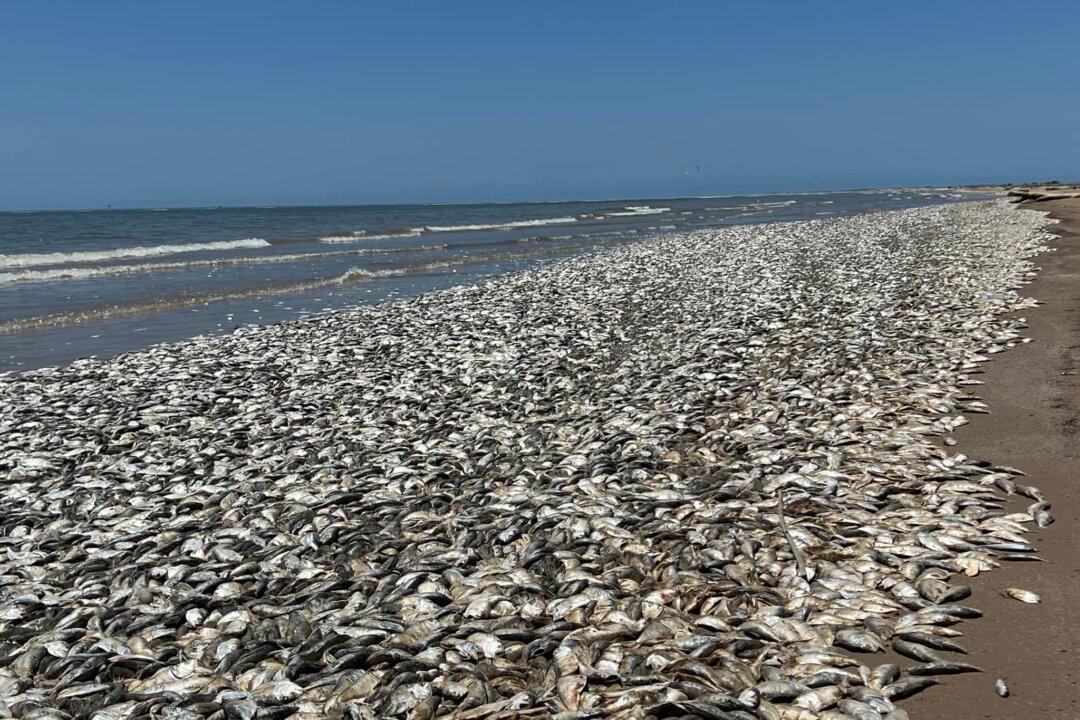Several Texas beaches along the Gulf Coast are in clean-up mode after being inundated with thousands of dead fish, which had prompted wildlife officials to warn people against visiting over the weekend until the “fish kill” fallout subsides.
On June 11, the Brazoria and Quintana County Parks departments used tractors with giant rakes to clear the carcasses of dead fish off the beaches.





